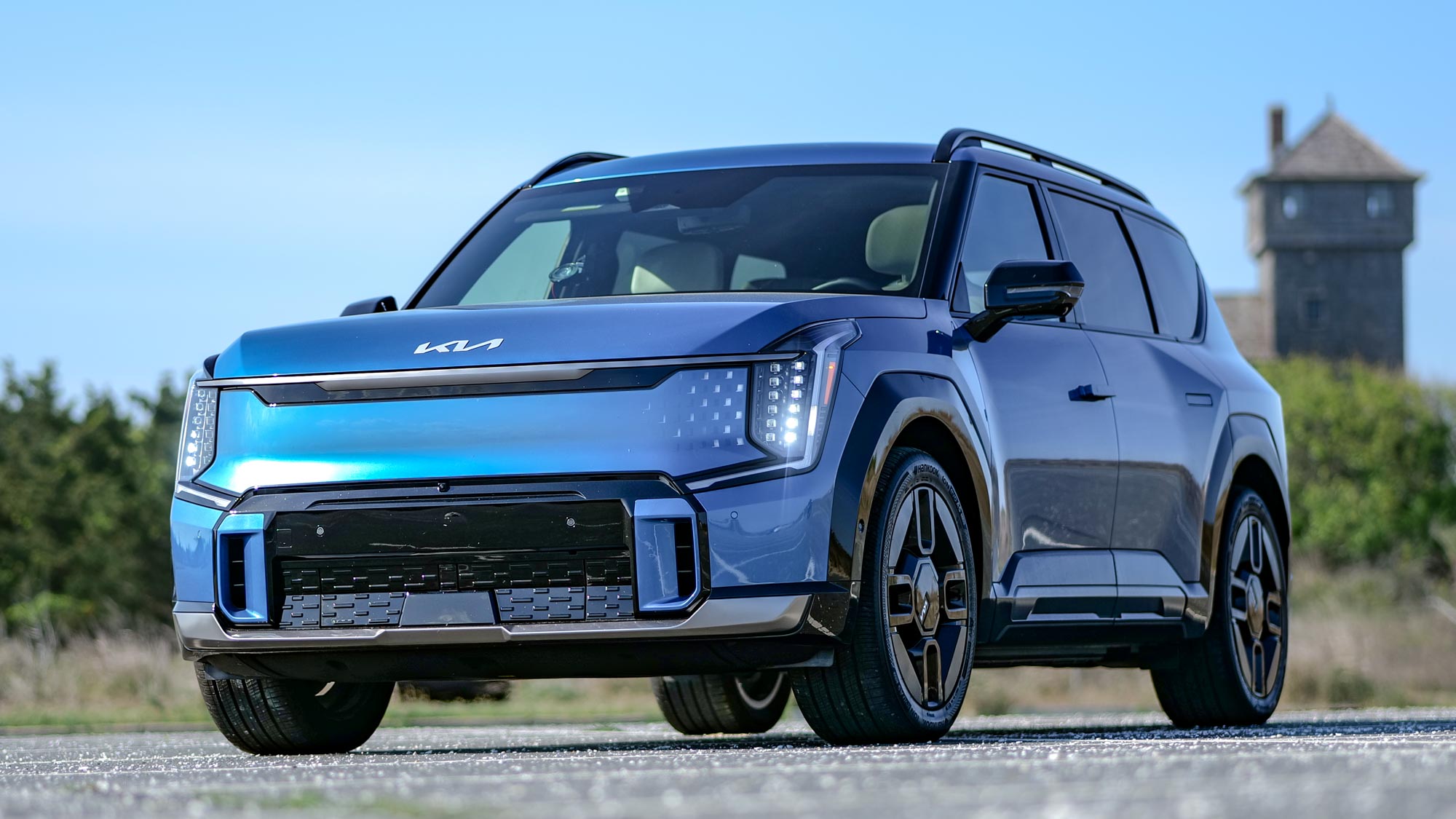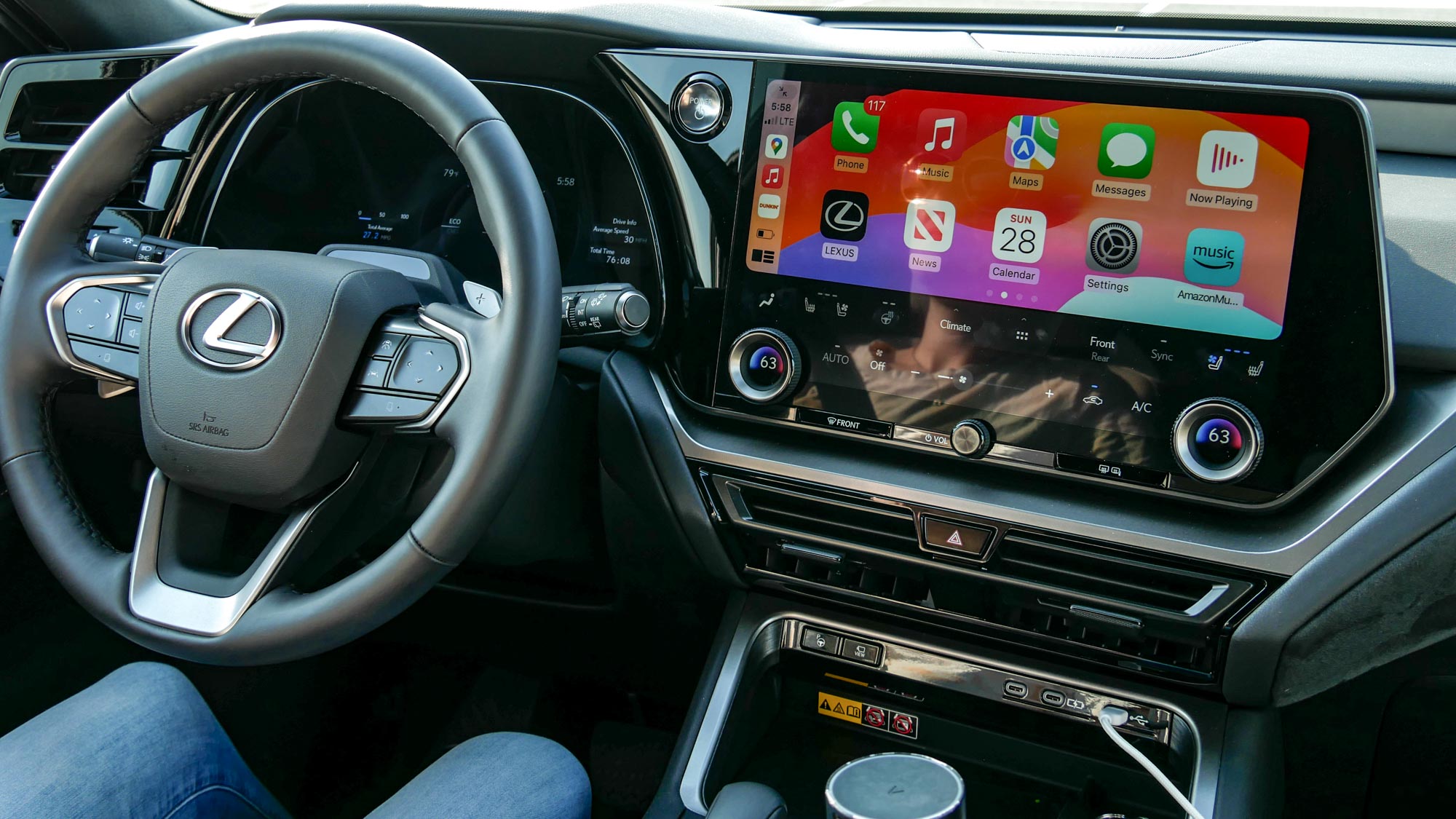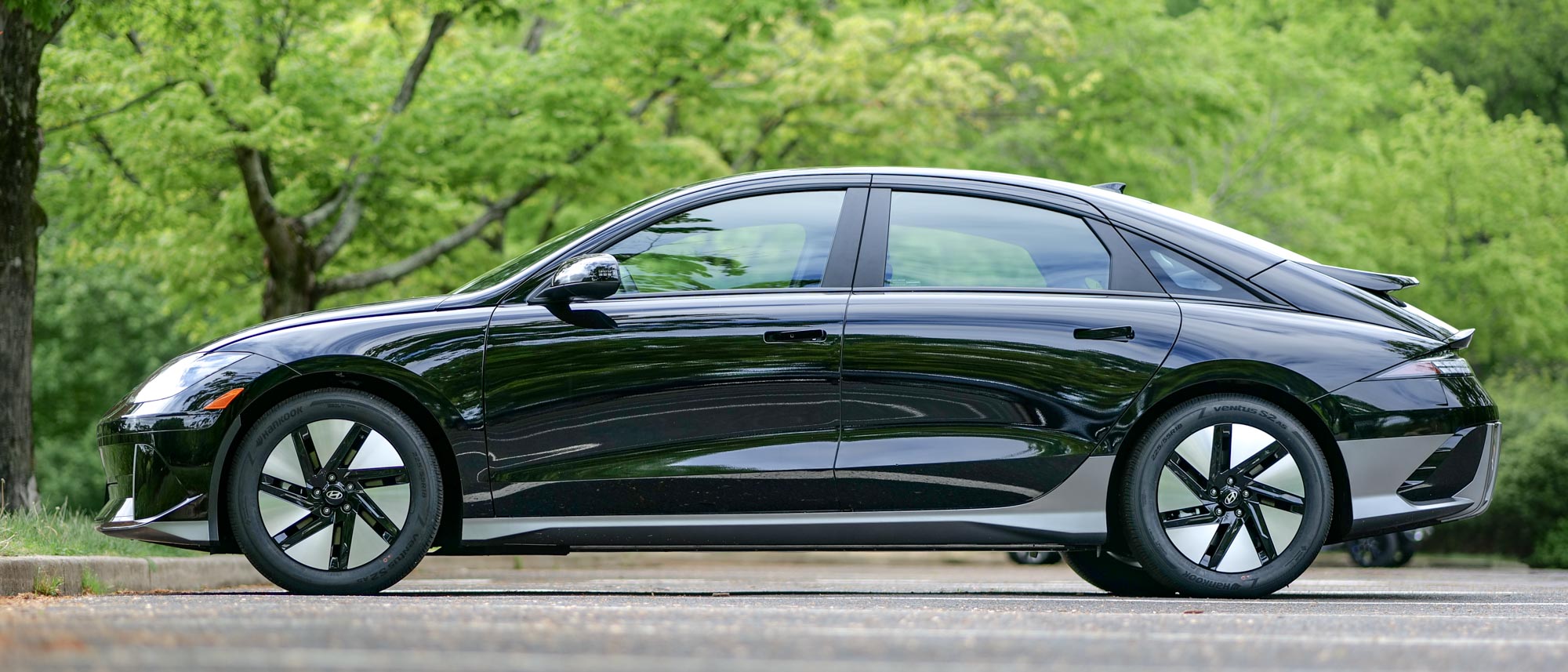I thought EVs were supposed to be smarter, but they're actually dumb — here's why
AI could make them smarter and safer

Here at Tom’s Guide our expert editors are committed to bringing you the best news, reviews and guides to help you stay informed and ahead of the curve!
You are now subscribed
Your newsletter sign-up was successful
Want to add more newsletters?

Daily (Mon-Sun)
Tom's Guide Daily
Sign up to get the latest updates on all of your favorite content! From cutting-edge tech news and the hottest streaming buzz to unbeatable deals on the best products and in-depth reviews, we’ve got you covered.

Weekly on Thursday
Tom's AI Guide
Be AI savvy with your weekly newsletter summing up all the biggest AI news you need to know. Plus, analysis from our AI editor and tips on how to use the latest AI tools!

Weekly on Friday
Tom's iGuide
Unlock the vast world of Apple news straight to your inbox. With coverage on everything from exciting product launches to essential software updates, this is your go-to source for the latest updates on all the best Apple content.

Weekly on Monday
Tom's Streaming Guide
Our weekly newsletter is expertly crafted to immerse you in the world of streaming. Stay updated on the latest releases and our top recommendations across your favorite streaming platforms.
Join the club
Get full access to premium articles, exclusive features and a growing list of member rewards.
I’ve been test driving EVs for the past several months and while I’m constantly uncovering new things about them along the way, like how you can adjust their charging speeds to adapt to your needs at home, there’s just one thing that annoys me more than anything else. It’s that they’re dumb.
I’m not referring to the common complaints I hear and read from EV detractors, like how they’re not good for long distance traveling, but rather on how they lack the proper voice commands to perform simple functions in the car. Sure, every modern car has a basic set of voice commands, but EVs deserve better — especially when they cost a lot more.
While CarPlay and Android Auto integrate Siri and Google Assistant respectively, they too could gain smarter functions that are specifically for the in-car experience. Here’s why this needs to change in order to make EVs (and just about every vehicle) more intuitive to operate.
Fewer distractions go a long way

I know that distractions are everywhere and inevitable. Whether I’m flipping through stations on SiriusXM with the large touchscreen display on the dashboard, or taking my hand off the steering wheel to adjust my seat, all of these actions take my attention away from driving. That’s why EVs should be smarter by offering better voice commands for exactly these kinds of things.
All vehicles come with a set of basic voice commands that primarily focus on phone functions, but it would be a tremendous boost if it could extend to other areas. For example, it would be great if I could activate an EV’s 360-degree and top-down views on the display when I begin to park in a spot with a voice command — rather than manually pressing on the corresponding button on the dashboard and touchscreen. Alternatively, it would also be less of a distraction if I could say a voice command to turn on the air conditioner at a set temperature.
My point is that these are actions that briefly require my attention. I also think about those situations when someone else drives an EV and they’re not familiar with it. I recently test drove a Cadillac Lyriq and I couldn’t figure out where the button was for the hazard lights, so much so that I had to Google it later on with my phone. A simple voice command would’ve been more than sufficient.
Deeper integration with Siri and Google Assistant

Speaking of CarPlay and Android Auto, I much prefer them over an EV’s native infotainment system. While I can ask Siri or Google Assistant to navigate me to a point of interest, they actually can’t be used for specific car commands — like the aforementioned actions I’ve mentioned above.
Get instant access to breaking news, the hottest reviews, great deals and helpful tips.
When I test drove a Kia EV9, I tried asking Google Assistant to turn on the air conditioner — but it ended up turning on the portable air conditioner in my bedroom. Obviously that wasn’t my intention, but it goes to show how there needs to be a deeper integration between Android Auto and CarPlay with today’s best electric vehicles.
Each new software release does exactly this, much like how CarPlay’s home screen will soon be adding climate control and shortcuts for temperature control, but I’d love to see them packaged into voice command form as well.
AI is everywhere, but not in EVs

So far, all of my requests in making EVs smarter are in the realm of possibility — but this next one might be a stretch. Given how artificial intelligence features are increasingly having a profound impact in other areas of tech, I think EVs would also benefit tremendously from there.
I often think about smart cruise control in today’s EVs, which can do things such as accelerate and brake automatically while maintaining cruise control speed. In my own experience using this feature in all the EVs I test drive, it still lacks human perception to adapt to what’s ahead in the road — like applying a harder brake when it senses an adjacent car entering my lane.
With AI, it could make driving not only smarter, but safer as well. One example with smart cruise control is that it could leverage all the cameras and sensors in an EV to determine that there’s congestion ahead and start applying a softer brake to coast the vehicle to a stop when it approaches.
Another example would be for AI to look up topographic maps of my route to determine all the appropriate areas when acceleration or deceleration are needed for better driving efficiency. Oftentimes I notice that smart cruise control increases the acceleration while halfway up an incline, rather than anticipating it ahead of time. With better AI in EVs, this would make them perform efficiently — and thus saving power.
More from Tom's Guide
- Charging your EV shouldn’t cost as much as gas — here's how I stopped overpaying
- If your next car isn't an EV, then at least it should be a hybrid — here's why
- Sorry, EVs — I test drove my first PHEV and it’s the perfect blend of electric and gas power

John’s a senior editor covering phones for Tom’s Guide. He’s no stranger in this area having covered mobile phones and gadgets since 2008 when he started his career. On top of his editor duties, he’s a seasoned videographer being in front and behind the camera producing YouTube videos. Previously, he held editor roles with PhoneArena, Android Authority, Digital Trends, and SPY. Outside of tech, he enjoys producing mini documentaries and fun social clips for small businesses, enjoying the beach life at the Jersey Shore, and recently becoming a first time homeowner.
 Club Benefits
Club Benefits










